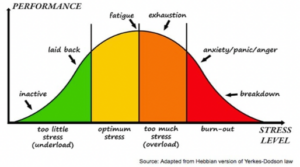Being busy, clocking long hours, and not doing anything outside of work have become glorified badges of honor. Yet with increased research on the importance of resting and recharging, why does it feel we’re getting worse at it?

The idea that the need for rest is some kind of innate weakness is knitted into the Western psyche. It was one of the United States’ founding fathers, Benjamin Franklin, who declared that “there’ll be plenty of time to sleep when you’re dead.” And this idea has remained deeply embedded in Western work values ever since. But Benjamin Franklin was wrong. Time and again scientific research has shown that sleep – and other forms of non-work ‘downtime’ – are critical to supporting and restoring our well-being and productivity.
If your boss has not yet worked this out, why not politely direct them to case of the Seattle Seahawks, one of the most successful NFL teams of recent times.
The Seahawks have been prioritizing sleep for years. Practice sessions are cut short to ensure quality rest, meditation and yoga are encouraged, players wear bands that track their sleep, and those players identified as chronic bad sleepers are referred to doctors.
The results have been astounding. Those players who had quality rest had twice the reaction time, focus, and endurance than those with poor sleep quality and fewer hours. “Some of the best players on the team are the best sleepers,” Sam Ramsden, the Seahawks’ director of player health and performance told the New York Times in 2016.
(As a former professional athlete, the author can attest that no level of overtraining or overworking will ever create such results.)
And it’s not just NFL teams prioritizing rest and sleep. Manchester City FC, Kerri Walsh Jennings, Tom Brady, LeBron James, Roger Federer, Usain Bolt all underscore the exhaustive list (pun intended) of the tremendous importance proper rest and sleep have on health and performance.
According to Pew Research, only 48% of US workers say they use all their vacation days. Eighteen percent have stopped taking vacations altogether. And when those days are taken, 67% admit to working on vacations. Reasons include no one to delegate to, fear of not being in control, fear of falling behind, love the job, and looming recession fears.
Our brains are like sponges. They can only soak up so much information before they’re saturated and need to dry out. To dry out, though, the brain must do less – much less.
The importance of rest on peak performance is as critical to the workforce as it is to top athletes. Even notable workaholic Elon Musk recently admitted fault in hindsight about not resting properly and how it thwarted his productivity, that “by being awake more hours, I [got] less done.”
In a recent interview with LinkedIn, Barack Obama highlighted the importance of balance and “the happiest, ‘most successful people’, are the ones who prioritize their personal lives just as much as their professional ones”.
With summer in full swing and the sincere hope holidays are being taken for rest and rejuvenation, here are some practical tips and best practices to help be mindful, rest, unplug, and rejuvenate.
1) Less information processing. Clinical psychologist Dr. Scott Bea from Cleveland Clinic emphasizes the importance of downtime for the overworked brain. Have you ever gotten stuck doing a crossword puzzle, set it aside and came back to solve it easily after a break? That’s no accident. Avoid watching television, scrolling through social media, playing games on your phone, and, of course, checking emails – these all require processing information.
2) Incorporate mindfulness activities. Any activity which does not require processing information –– we need true downtime to allow our brains to wander. Consider nature walks (proven science behind the recuperative life quality benefits of being in green/blue spaces), gardening, cooking/dining with significant others, walking your dog, volunteering, a favorite hobby, exercise, reading a book. . .whatever REJUVENATES your physical and mental energy!
3) Proper rest is critical to rejuvenation and reinvigoration. Consider the top athletes. Proper rest and sleep have an enormously greater effect on efficiency, productivity, and creativity than staying ‘plugged in’.
4) Rest before you need it. Rest before you’re in the red danger zone – aim for the amber zone (see image below). This enables the rest to be rejuvenating rather than trying to catch up.

5) Have fun. Play. Whatever your passion, hobby, or idea of a fun experience is – feed it. Schedule regular time for it. Having fun (akin to laughter) is the secret to a healthier life.
6) Savor the good. Life is meant to be lived. La vita e bella. La vie e belle. La vida es una. Cherish and be mindful of the great moments and celebrate successes along the way (big and small!) Be present. Be in the moment.
Give yourself a break and schedule some – your productivity and well-being depend on it.
If you’d like to learn more about Templar’s courses on the importance of developing proper habits to prioritize rest while building resilience, please contact: jc@templaradvisors.com